Content warning: This story contains graphic depictions of domestic violence. This story was produced in partnership with Type Investigations.
Their first kiss was in the laundry room of a hostel.
It was 2010, and Jewel Lazaro was road-tripping through British Columbia before starting community college in her hometown, Seattle. She was assigned several roommates at a Vancouver hostel, one of them an intriguing Irishman.
Seth Colchester was dark haired and blue eyed, and seemed to know a little about everything. He’d grown up surrounded by sheep and cows on an organic farm, but was working as a deejay in Spain, he told Jewel. After a night of dancing and flirting, they found privacy amid the hum of the washing machines.
They dated long distance. In 2013, when she was 23, Jewel moved to Dubai to work as a flight attendant for Emirates. It was exciting to crisscross the globe every week, but before long she was exhausted.
Seth told her to quit, she said. She could move into his loft in Barcelona and pursue her passions — singing, songwriting, art.
“I loved him, and I trusted him,” she said. “I was really naive.”
In close quarters, Jewel said she saw a new side of her boyfriend. “He would constantly belittle me and make me feel stupid,” she said. “He would say things he knew would make me upset, then get mad at me for being emotional.”
He told her birth control pills were unhealthy, and she should stop taking them, she said. She did. In spring 2014, she found out she was pregnant.
That’s also when Seth first became violent, she later said in court papers. Angry that she wouldn’t accompany him to a party one night, he hurled a ceramic bowl filled with hot soup at her head, she said. In her second trimester, when she asked him to slow down on a drive in the country, he allegedly hit her, dragged her out of the car and to the ground, and sped off, leaving her in a field for hours. Afterward, she emailed a domestic violence crisis center, which urged her to call its hotline or the police. But Seth apologized and said it wouldn’t happen again, she said.

Their daughter was born in early 2015. For privacy, she is identified only by her middle name, Lucia.
Seth grew even more volatile after Lucia’s arrival, according to Jewel’s court papers. One day, he allegedly ripped the child from Jewel’s breast, hoisted her above his head, and ran around the house with her as Jewel begged him to give her back.
In the same court papers, Jewel alleged that Seth was a drug dealer. He’d shown her a warehouse where he was growing a vast crop of cannabis under special lights, she said. There had been garbage bags full of marijuana in the basement of a home he rented in the countryside, she said, and stacks of cash buried in plastic in the yard.
By the time Lucia was six months old, the warehouse had burned down, the basement had been burglarized, and the dog had dug up the money, according to Jewel. She later said she asked Seth to find a safer line of work, but he didn’t. In spring 2016, she left him.
He paid for her and Lucia’s new apartment, and she said he routinely let himself in and yelled at her. One day, when she was out, he smashed her guitar. In winter 2018, he told her she couldn’t live there anymore.

Shortly after, Jewel made a startling discovery. Arriving to pick up Lucia from her private, progressive preschool, Jewel saw her lying on her back with her leggings down as two older boys touched her between the legs. A teacher looked on from a few feet away.
Jewel demanded a meeting with school officials, which she recorded and got Seth to attend. Sexual “play” among the children, supervised by adults, was a normal, permissible activity at the school — a game like any other, the officials said.
Jewel was horrified, but Seth said he trusted the school.
“This was the first time I got up the strength to flee my abuser,” Jewel wrote in court papers.
In April, without warning Seth, she took Lucia across the Atlantic Ocean, to her mother’s home in Sultan, Washington. Immediately, she hired a lawyer, who helped her file for custody in Snohomish County Superior Court. In a sworn statement, she portrayed Seth as an abusive criminal who couldn’t safely raise their child.
Seth declined a request for an interview, saying he wanted to protect his daughter’s privacy, and he didn’t respond to a list of detailed questions. But in Snohomish County court papers, he “unequivocally” denied Jewel’s allegations and sought to dismiss the custody suit. In the same court, he filed a petition summoning Lucia back to Spain. He cited a treaty Jewel hadn’t heard of: the Hague Convention on the Civil Aspects of International Child Abduction.
The pact was brokered by mostly Western diplomats in 1980, when divorce rates were soaring. There was a consensus, supported by limited data, that fathers who had lost custody of their children were kidnapping them and hiding them abroad, leaving mothers with no means of redress. In the United States, the media told heartbreaking stories of American children who’d vanished into the Middle East with their violent immigrant fathers.
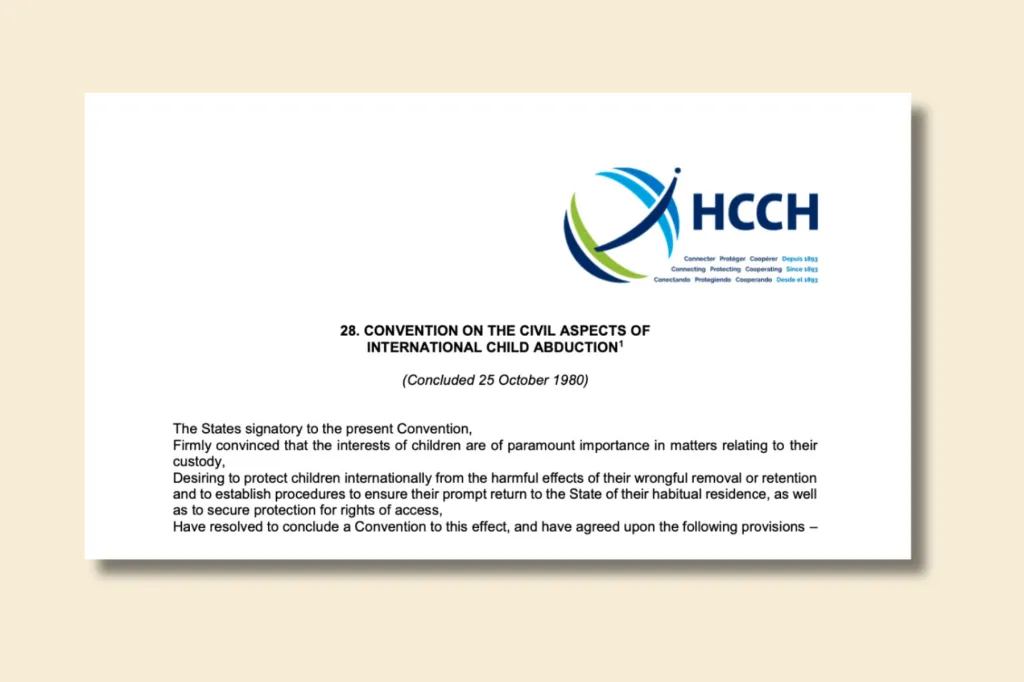
Congress implemented the treaty in 1988 with the passage of the International Child Abduction Remedies Act, or ICARA, and the State Department pressed other nations to follow. Countries in the convention — today, there are more than 100 — must return one another’s children when a parent asks, subject to various exceptions. In 2021, the last year for which numbers are available, more than 2,190 return petitions were filed around the world, including more than 300 seeking the return of children who, like Lucia, were brought to the United States from abroad.
But contrary to what the drafters anticipated, only a minority of petitions are filed by mothers, according to data from the Hague Conference on Private International Law, which administers the treaty. In 2021, fathers filed about 73 percent of cases in the United States and about 75 percent worldwide.
Often, their wives and children had good reason to run, The 19th and Type found in a 16-month investigation.
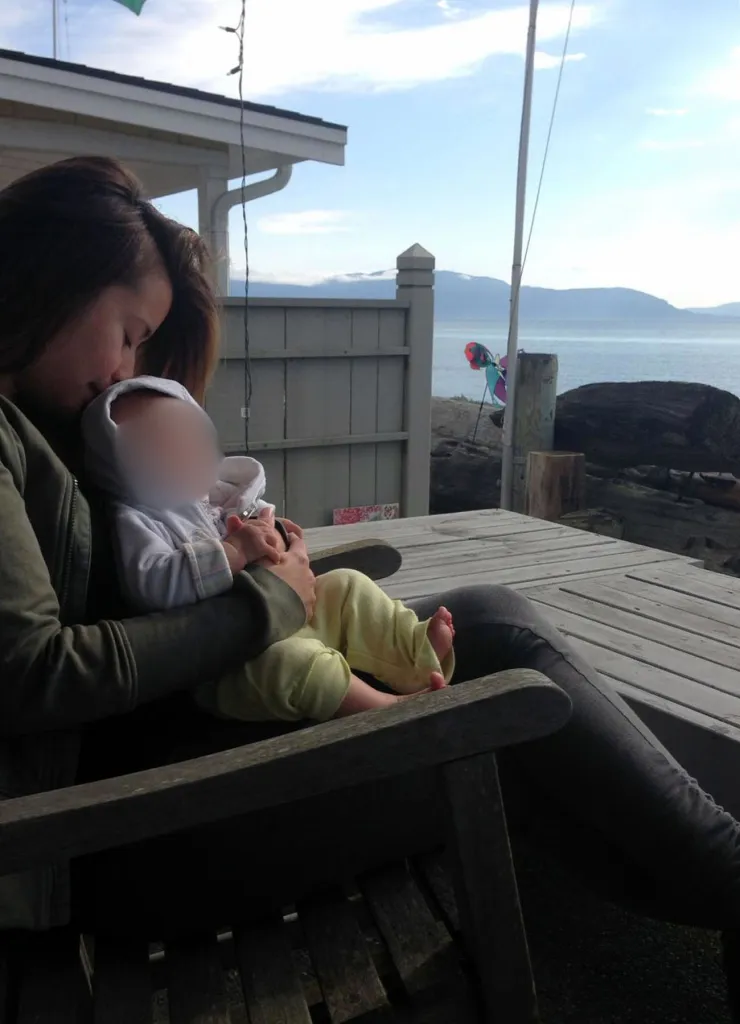
We interviewed Jewel and 25 other “Hague mothers,” most of them Americans who fled Europe and Latin America. We also analyzed all the rulings published in U.S. Hague cases from July 1, 2022, to June 30, 2024. In each case, a parent who lived overseas was petitioning for the return of at least one child brought to the United States.
This analysis suggests that, in many ways, Jewel’s situation is typical. Out of 114 published cases, 77 percent were filed by fathers against mothers, at least 79 percent of whom accused the petitioning father of spousal abuse, child abuse or both. We did not attempt to independently verify the abuse claims, but scholars have found that neither children nor mothers are likely to fabricate abuse claims during custody disputes.
Responding mothers, 44 percent of whom were American, commonly said in court papers that their exes had raped, strangled or threatened to kill them abroad, often in front of the children. Mothers also accused fathers of biting them, hitting them, shoving them into walls and to the ground, stealing from them, demeaning them, stalking them, hacking into their email, and blocking their access to money, transportation and friends. Some mothers accused fathers of molesting or beating the children. One petitioning father had been convicted in Israel of whipping his daughter with a belt; another was incarcerated in Scotland for killing his mother.
By design, however, both the treaty and ICARA favor petitioners. The exceptions to return are narrow, the burden of proof is on the respondent, and the resolution is supposed to be swift.
Often, mothers who claim abuse cite the treaty’s “grave risk” exception, which allows judges to deny a petition if return could expose the children to physical or psychological harm or an otherwise “intolerable situation.” But in our study sample, judges rarely accepted the grave risk defense, even when it was supported by evidence such as text messages, photographs, medical records, domestic violence restraining orders and police reports. Overall, fathers accused of abuse stood a 55 percent chance of winning their children’s return, either through an order or a settlement, compared to 58 percent of petitioners in general.
Many mothers who lose Hague cases in the United States fight for custody overseas, but, cast as kidnappers, they often lose, experts say. Some mothers we interviewed are allowed only weekends and holidays with their children, while others have been banished from their lives. A few have faced criminal kidnapping charges.
Typically, Hague mothers are left broke, frightened and desperate. Many have been begging for help for years, to no avail.
“There are so many men’s rights groups and men’s activist groups, and they have so much money and so much support, and we have no money, just a whole heap of mothers reaching through their screens and holding hands together in solidarity,” said an Australian mother whose anonymous Instagram, Her Hague Story, is devoted to women and children affected by the treaty. “Once you’re Hagued, it’s just all about survival.”
Seeking sanctuary
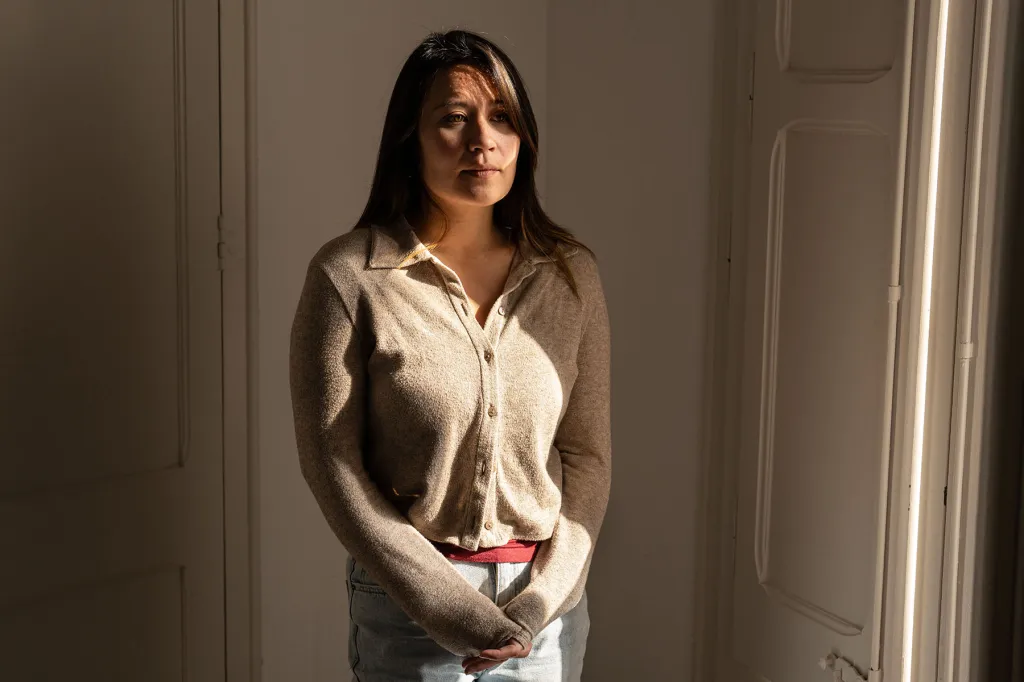
The sky was gray over Snohomish County on August 31, 2018, and Jewel had a bad feeling as she approached the courthouse. That day, at a hearing, a judge would decide if Lucia, an American citizen, could stay in the United States.
To beat a Hague petition, respondents must generally establish one of five defenses, most of which didn’t apply in Jewel’s case. Her best bet was the grave risk defense, even though, under ICARA, it has to be proven by the high standard of “clear and convincing” evidence. By contrast, petitioners are held to the lower “preponderance of the evidence” standard in showing that their children were “wrongfully removed” from their home country.
In our analysis of recent cases, most responding mothers who alleged abuse attempted to prove the grave risk defense, but only 17 percent succeeded. In many cases, judges said the exception didn’t apply because the alleged abuse mainly targeted the mother, whose safety isn’t addressed in the treaty. Some judges questioned the mother’s credibility, said she failed to adequately corroborate her claims or deemed them insufficiently dire.
It’s essential that fleeing mothers retain an attorney who understands the niche field of Hague law, said Nicole Fidler, an attorney at Sanctuary for Families, a New York nonprofit that serves domestic violence victims. But while the State Department helps petitioners find knowledgeable, affordable counsel through its Hague Convention Attorney Network, it leaves respondents, including Americans like Jewel, in the cold. This leads to an “inequality of arms” in the courtroom, Fidler said, which is heightened in the many cases where financial abuse has left mothers impoverished.
“There is such an imbalance of power,” she said.
Jewel found her lawyer, Kathryn Peterson, online, and she couldn’t pay her much. Though Peterson filed a detailed brief supporting Jewel’s custody bid, it didn’t develop a defense to Seth’s Hague petition, which went unanswered, court records show. Under the treaty, custody cases can’t be decided when an application for return is pending, since it’s not clear which country will have jurisdiction.
In an email, Peterson said she was only hired for the custody suit; in the Hague case, she said, Jewel was unrepresented. Jewel said she had no inkling of this until two days before the hearing on both cases, when Peterson urged her to “find someone who was in international law.”
In a ruling from the bench that was neither tape recorded nor transcribed, Judge Janice Ellis ordered Lucia, who was 3 1/2, back to Spain in Seth’s care. Ellis dismissed Jewel’s custody bid for lack of jurisdiction.
Seth picked Lucia up later that day, in the parking lot of a bakery in Sultan.
“It was like a bomb went off in my body,” Jewel said. She spent the next several hours in a “zombie-like state,” calling lawyers in a fruitless search for hope. Then she got sick. For weeks, it seemed she had the flu; later, she was struck with night terrors, heart palpitations, breathing problems, and a sense of physical numbness.
On transatlantic video calls, Lucia seemed broken, too, according to Jewel.
“Mommy, I need you!” the child cried one day.
“I know, baby. I need you, too.”
It was like a bomb went off in my body.”
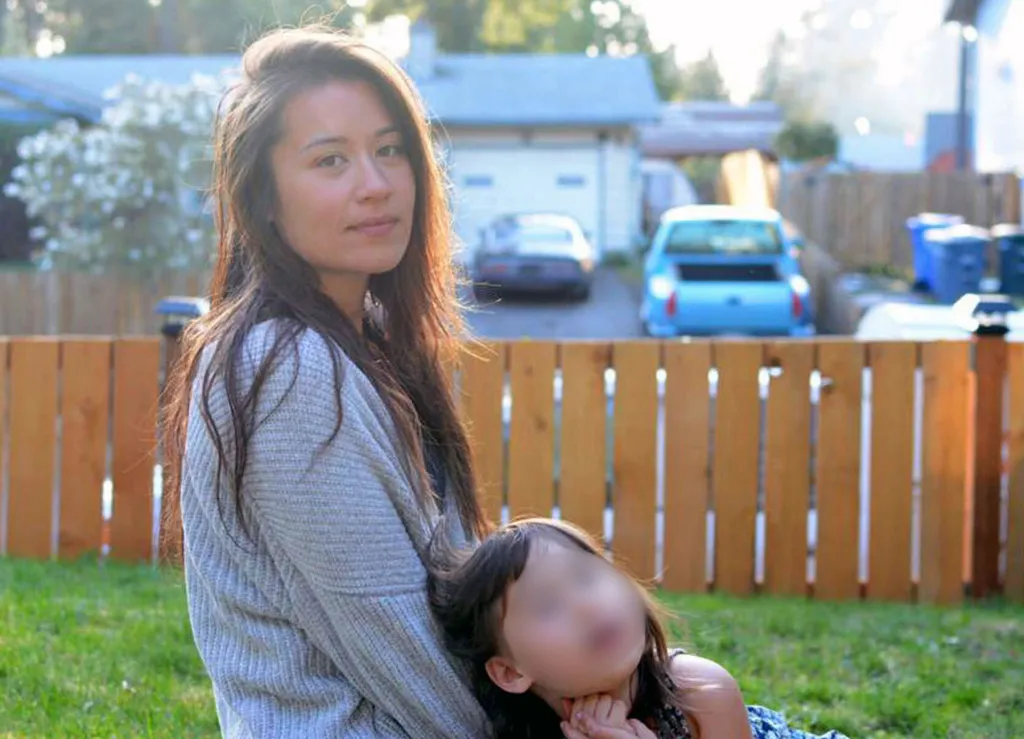
Meanwhile, unbeknownst to Jewel, Spanish police were investigating Seth as the main suspect in a “criminal organization” dedicated to illegal marijuana production and trafficking in the provinces of Barcelona and Girona, Spanish court records show. In fall 2018, while the investigation was underway, he and Lucia left Spain for Vancouver, Canada. Later, he testified that Lucia had been suffering without Jewel, and he wanted them to spend weekends together.
That didn’t work out. Jewel said that whenever one of her visits with Lucia ended, the girl would scream, cry, and kick, sometimes refusing to get in Seth’s car. He said she was regressing and blamed Jewel. In early 2019, he took Lucia back to Spain, where he opened a kombucha shop. By this time, a judge had shut down the drug investigation, saying the police’s evidence against Seth was weak.
In another Spanish court, Seth filed for sole custody of Lucia; so did Jewel, who also sought permission to relocate her to Washington. She didn’t reprise her abuse allegations because her Spanish lawyer advised her not to, she said, though she never fully understood why.
Citing Seth’s local business, Jewel’s distant location, and Lucia’s need for stability, the judge granted Seth sole custody and ordered Jewel to pay him child support, even though, due to poor health, she wasn’t working. Her visits would be limited to one week every month and had to occur in Barcelona, though those restrictions would be lifted during school breaks.
“I felt like I wanted to die,” Jewel said. Some days, she felt so sick that she thought she might.
She was arranging for Lucia to spend her Easter break in Washington when the pandemic struck. If she insisted on an Easter visit, Seth said, she’d have to come to his country house.
She arrived in Spain at the end of March to whoops of joy from Lucia, who had recently turned 5. But Seth spent the next week terrorizing them both, Jewel said.
“[Lucia] would sneak into my room after he went to bed, but every morning, he would get angry about it,” she said. One morning, “he started chasing her, screaming at her, and shaking his finger in her face as she cried.” He walked away, then “came back with a tool, aggressively removed the door handle, and said, ‘You won’t be able to keep her in here.’”
Later in the visit, when Jewel heard Seth yelling at Lucia, she pressed record on her phone. “Get down the stairs before I kick you down the stairs!” he said. “I hate you!” Lucia replied.
According to Jewel’s court testimony, Seth fulfilled his threat to kick the child, who stumbled down a couple of stairs. He denied this and said the recording took his words out of context.
Jewel had her lawyer call the police, who met her a short distance from the house. But her Spanish wasn’t great, and she struggled to explain what was wrong, she said. Still, she said, the police suggested she leave, and Seth watched as she and Lucia departed for a friend’s house. The friend helped her call some domestic violence agencies, but the pandemic had temporarily shuttered them.
To protect Lucia, she believed, she had to bring her back to Washington.
“It was just the only place we could go,” she said.
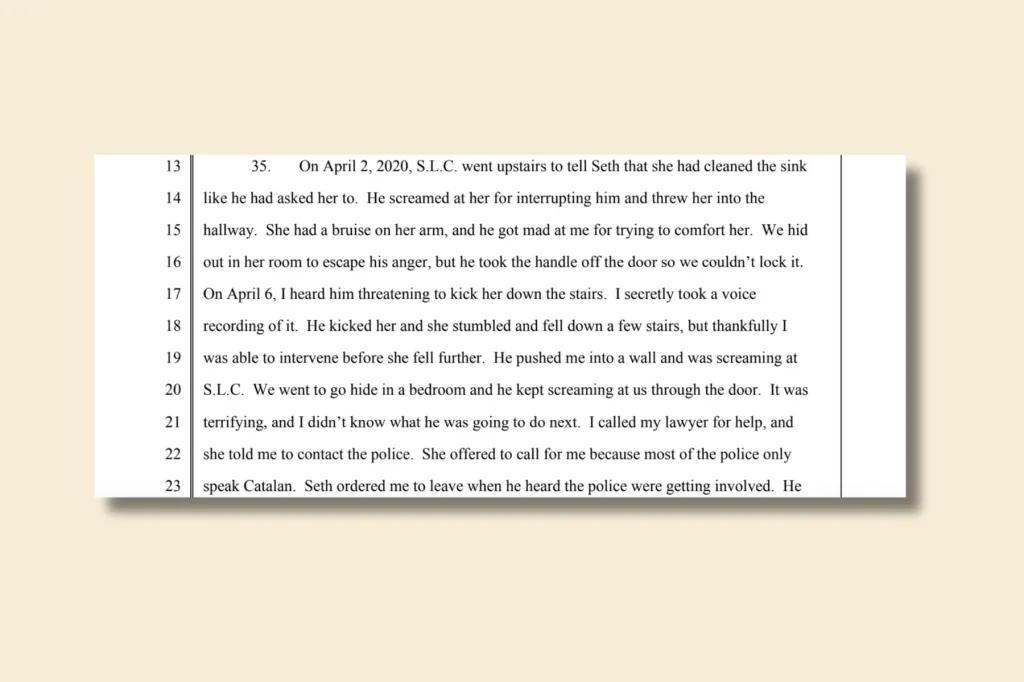
After landing in Seattle on April 9, 2020, she texted Seth that she would return the child “when we are legally allowed to travel again and the situation is safe.” She filed an application for a restraining order against him in Snohomish County and a criminal abuse complaint with Spanish police.
Seth reported her to Spanish police for parental child abduction, a felony that carries a prison sentence of up to four years, and filed another Hague petition in Snohomish County. In July, at his request, a judge told Jewel to surrender Lucia to him while the Hague case was pending. Defying this order, she took Lucia by ferry to a small town across the Puget Sound, where they hid out with friends while she prayed for a miracle.
Which, in late summer, seemed to arrive.
Jewel stumbled across the website for Sanctuary for Families and talked to Fidler, who tries to match Hague mothers with pro bono lawyers at big firms. The next thing Jewel knew, she was on a video call with a dozen employees of Orrick, Herrington & Sutcliffe, one of the most prestigious firms in the country.
They didn’t know if she could beat the Hague petition. But they promised to put up a good fight.
Unintended consequences
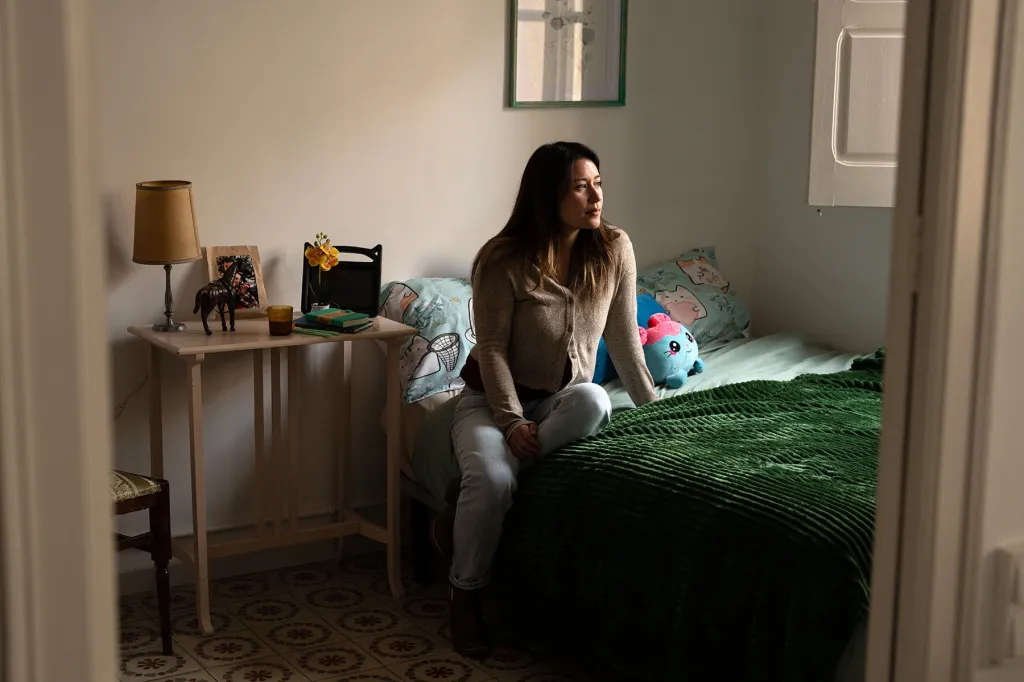
Besides Jewel, 16 of the mothers we interviewed were Americans who lost Hague cases in this country to alleged abusers who lived overseas. Three eventually won primary custody abroad; one got her children half the time. Most, like Jewel, were far less fortunate. Three mothers can see their children only at brief supervised visits. Another mother was deported from Singapore after returning there with her five children. She scarcely saw them for the next four years.
“In the other country, the mom is seen as a kidnapper,” said Jeffrey Edleson, a former dean of the social work school at the University of California, Berkeley and the co-author of a study on Hague mothers who were domestic abuse victims. Moreover, she’s often a foreigner, while the father is usually a citizen with the resources to win a protracted case, Edleson said. “It’s not a poor father who’s going to be doing this.”
Neither the authors of the Hague treaty nor the lawmakers who adopted it intended to help wealthy abusers, according to historians.
In 1986, Patricia Roush, a nurse in Illinois, asked one of her U.S. senators, Alan Dixon, to help her save her daughters.
Roush told Dixon that during what was supposed to be a short visit, the children’s violent, mentally ill father had kidnapped them to his homeland, Saudi Arabia. She had been granted sole custody by a court in Illinois, but authorities in Saudi Arabia refused to intervene.
When Dixon, a Democrat, pressured State Department officials to secure the children’s release, they said there was little they could do. “If the Hague Convention had been in force, perhaps, Patricia Roush and her daughters could have been saved from this pain and suffering,” Dixon said on the Senate floor when ICARA was introduced in 1987. “Patricia would have a way to bring her children home where they legally belong.”
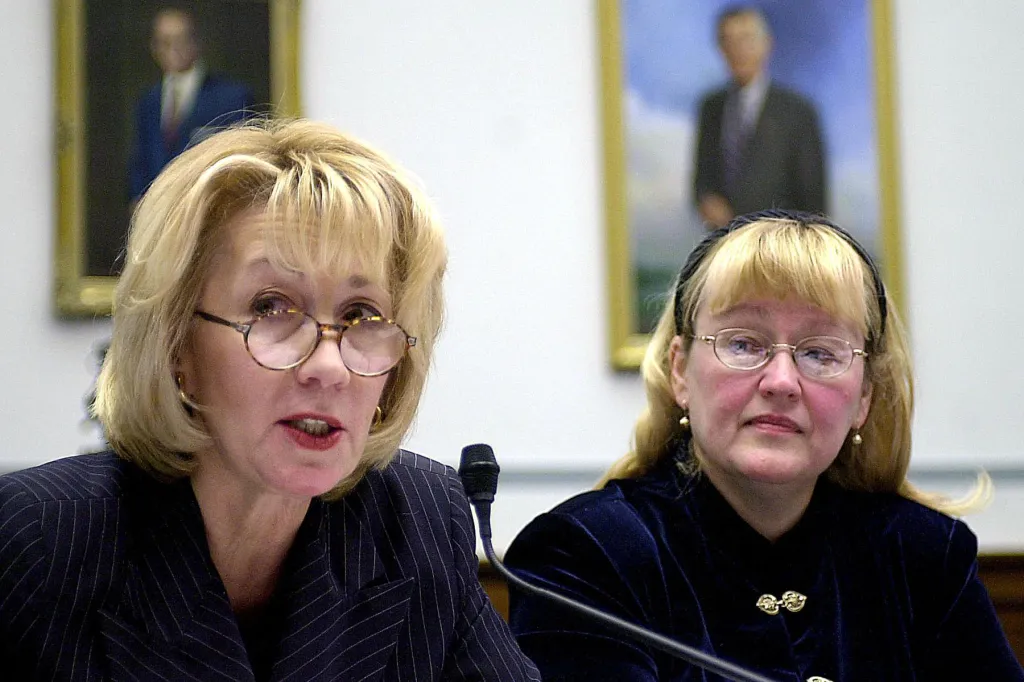
The treaty was written for scenarios like hers. According to a report published by the drafters in 1981, the typical abducted child has suffered “the traumatic loss of contact with the parent who has been in charge of his upbringing,” and the status quo should be quickly restored. The exceptions to return must be applied “only so far as they go and no further,” according to the report, which is often cited by judges. “This implies above all that they are to be interpreted in a restrictive fashion if the Convention is not to become a dead letter.”
People didn’t predict that primary caregivers and domestic violence victims would be defending against Hague petitions in addition to filing them. But by the 1990s, such cases were common, and women were losing them, according to Merle Weiner, a law professor at the University of Oregon. “The simplicity and speed with which the Convention operates, as well as the legal aid available for petitioners but not for respondents, helps to make the remedy of return a particularly powerful legal weapon for batterers,” she wrote in a 2000 paper.
Return in these cases was sometimes calamitous. In 2007, Cassandra Hasanovic fled England for Australia with her two boys after her husband, Hajrudin, threatened to kill her. After winning the children’s return, Hajrudin stabbed Cassandra to death in front of them. In 2010, Predrag Perisic of Texas won the return of his daughter, Danyela, and son, Deyan, from Quebec, then shot them. Danyela survived, but with grievous injuries. Deyan died.
The U.S. government perceived no crisis. At a Hague Conference meeting in 2006, the Swiss delegation proposed an amendment to the treaty to protect primary caregivers, including domestic violence victims. But according to Weiner, who was there, State Department officials opposed the change because it would purportedly favor women. In 2010, the department said an amendment wasn’t needed because the treaty worked well the “vast majority” of the time. No data was cited to support this.
Though the number of alleged abductions to the United States from other convention countries far exceeded the reverse, the media showed much more interest in outgoing cases. In early 2009, NBC devoted a special episode of “Dateline” to the plight of a New Jersey father, David Goldman, who had unsuccessfully petitioned for his son’s return from Brazil. Not long afterwards, Goldman’s ex-wife died there, and her second husband, a Brazilian lawyer, was allowed to keep the boy.
The “Dateline” episode changed everything. Rep. Chris Smith, a New Jersey Republican and a member of the House Foreign Affairs Committee, introduced a resolution calling for the child’s return; Secretary of State Hillary Clinton demanded it from her Brazilian counterpart; and Sen. Frank Lautenberg, a New Jersey Democrat, halted a trade deal that benefited Brazil. In December 2009, father and son were reunited by an order from Brazil’s highest court.

Smith introduced a bill, named after the Goldmans and backed by fathers’ rights activists, that would empower the State Department to penalize countries for failing to return children to the United States. To advance it, he convened hearings on the treaty, but they concerned American petitioners who had not won return, not American respondents who sought to avoid it. In testimony, fathers from around the country characterized their ex-wives, nearly all of them foreign, as selfish manipulators, while lawyers and lobbyists asserted that respondents commonly raised false abuse claims.
Behind the scenes, however, one of Smith’s colleagues on the foreign affairs committee, Rep. Ileana Ros-Lehtinen, a Florida Republican, was working with Weiner on a different bill. It would amend ICARA to require judges to distinguish between abductions and “flights to safety”; lower the standard of proof for the grave risk exception; and specify that domestic violence could trigger it, even if the children weren’t targeted.
At a committee meeting in October 2013, Ros-Lehtinen pledged support for the Goldman Act but noted that, in some cases, return has put children in peril. Soon, she said, she would introduce a bill to address ICARA’s “unintended consequences.”
The Sean and David Goldman International Child Abduction Prevention and Return Act gained universal support in the House and became law in 2014. Ros-Lehtinen’s bill, on the other hand, was never introduced. According to Weiner, the team gave up on the measure because Smith “never got on board.” In an email, Ros-Lehtinen, now a lobbyist, declined a request for an interview but denied that Smith caused the bill’s demise. Smith didn’t respond to requests for an interview.
Reformers in some other countries have had more luck.
Since 2000, Switzerland, Japan and Australia have passed laws that, to varying degrees, help abuse victims fighting Hague petitions in their courts. Brazil is poised to follow, partly thanks to some mothers who have amassed huge social media audiences since losing their cases. In India, a feminist uprising in 2016 persuaded the government not to sign the treaty.
While ICARA remains unchanged, Hague mothers in the United States recently took a small step forward, thanks to a Brooklyn case that started in 2018.
Narkis Golan fled home from Milan with her 2-year-old son because her wealthy Italian husband, Jacky Saada, had repeatedly raped, strangled and threatened to kill her there, she said in court papers. “He said the only way out of this marriage is in a coffin,” she testified at the trial on his Hague petition.
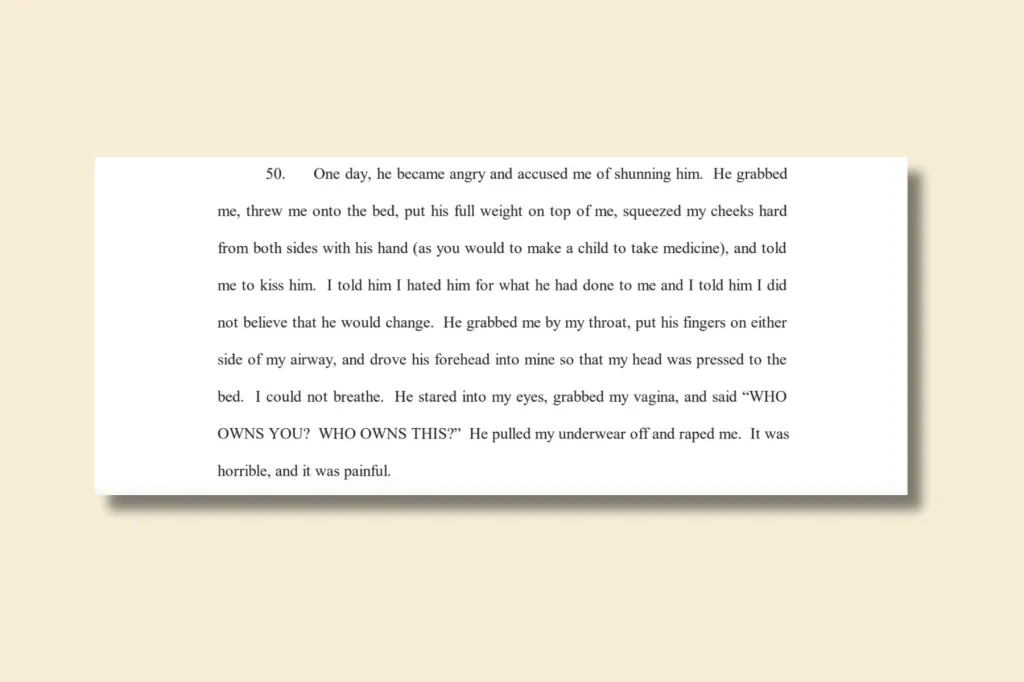
With help from the lawyers Fidler found for her and some recordings she’d made during Saada’s assaults, Golan persuaded U.S. District Judge Ann Donnelly that there was a grave risk her son could face harm in Italy. But Donnelly ordered him back nonetheless. In her view, the risk was adequately mitigated by various promises she had demanded from Saada, including a pledge to leave Golan alone.
Golan got a stay of the return order and took her appeal all the way to the Supreme Court, where, in June 2022, she won.
“The Convention does not pursue return exclusively or at all costs,” Justice Sonia Sotomayor wrote in a unanimous opinion vacating the return order. When there has been domestic violence, the risk to the child may be so severe that return is inappropriate, Sotomayor said. Donnelly was to reconsider her ruling “bearing in mind that the Convention sets as a primary goal the safety of the child.”
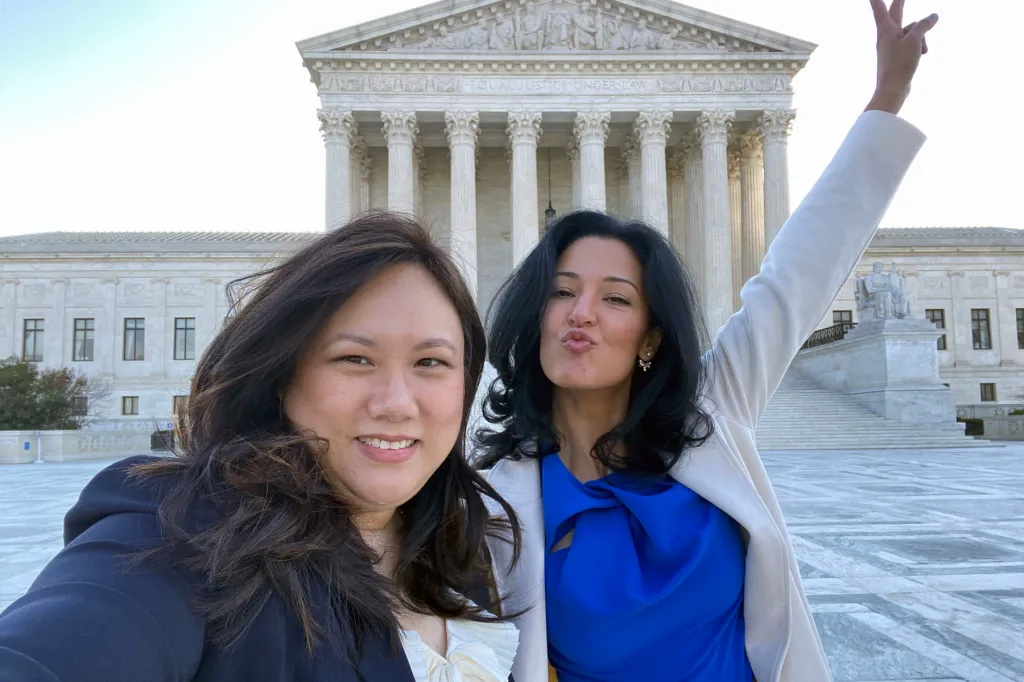
(Courtesy of the Golan family)
The opinion was hailed by feminists and child advocates nationwide and has since been cited in more than 80 rulings, many of them refusals of return. But there was no sea change. In our study sample, the proportion of children returned to the country of an allegedly abusive father wasn’t much different before and after the ruling.
In fact, it didn’t even help Golan.
Two months after the Supreme Court remanded the case to Donnelly, she again ordered the boy returned to Italy, noting that a family court in that country had already given Golan temporary custody and was committed to protecting him there.
A woman shouldn’t be treated “like a uterus without rights,” Golan posted on Facebook the next day. “I won’t stop fighting and from now on, I won’t be silenced, either,” she wrote. “I want the world to know the truth.”
Seven weeks later, as her latest appeal was pending, Golan was found dead on the floor of her Brooklyn apartment. Though her family suspected foul play, the New York City medical examiner said she’d suffered an unexplained but natural brain bleed. Her sister ultimately persuaded Donnelly to let the grieving child stay in Brooklyn.
A child at risk
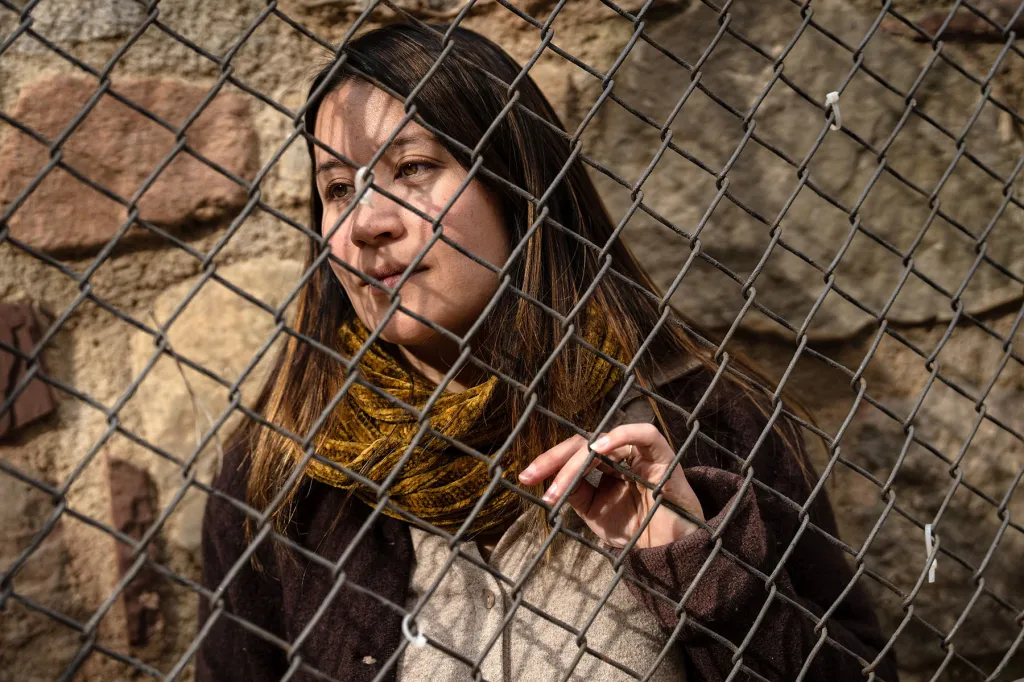
Defeats in the legal system have a way of snowballing, said Rene Kathawala, who runs the pro bono program at Orrick, the firm that has represented Jewel since she fled Spain the second time. Once a litigant has lost a case or two, judges tend to doubt her claims, and before she knows it, she’s lost again.
Jewel “did not receive the best possible legal representation” in her first Hague case and her Spanish custody battle, Kathawala said, but the judge in her second Hague case wouldn’t know that. To reverse the momentum, he said, she needed someone who’d support her tirelessly. Someone like Aaron Brecher, the white-collar criminal defense associate at Orrick who agreed to lead her team.
“My passion is taking tough cases to trial and fighting hard,” said Brecher, who was an editor of the law review at the University of Michigan and once secured the release of a pro bono client serving life without parole for unarmed robbery.
In fall 2020, Brecher says he got Seth to drop his demand that Jewel surrender Lucia immediately. He also removed the case from state to federal court, hoping to slow it down.
At a hearing in January, he asked U.S. District Judge John Coughenour for three and a half months to develop evidence that Seth was trafficking drugs. Already, a forensic accountant Brecher hired had found that while Seth rented two homes in the Barcelona area, he had no “meaningful” income.
And Brecher’s team asked the judge to order a psychological exam of Lucia to assess whether returning her to Spain could be harmful. The previous spring, shortly after arriving in Washington, she’d opened up to a therapist Jewel found for her. “Daddy wasn’t nice to me,” Lucia said, according to treatment notes. “He threw me out a window. He locked me outside from daytime until nighttime.”
Without explanation, Coughenour declined to order the exam and set the trial for the following month.
That was a “huge blow,” Brecher said, but he still hoped the judge would hear from Lucia directly about how her father treated her, either in open court or in chambers.
When the trial began, however, Coughenour said it would be “inappropriate” to allow the 6-year-old to testify, as it could cause her “permanent scarring.” He also barred the testimony of Brecher’s forensic accountant, saying, “we’re not here to try a criminal case against Mr. Colchester.”
Both Jewel and Seth testified at length. Seth portrayed Jewel as an irresponsible and unstable liar. Contrary to her claims, he didn’t grow or sell drugs, he said, and he’d never mistreated either her or Lucia.
On February 26, 2021, Coughenour ordered Lucia back to Spain with Seth in a written ruling that rejected Jewel’s grave risk defense without saying why. Instead, the judge chronicled her previous court losses and accused her of abusing the system. He also ordered Jewel to reimburse Seth for $115,000 in litigation expenses.
Hours after the ruling, a caravan of black SUVs pulled up to Jewel’s mother’s house. It was a squad of uniformed U.S. marshals.
Lucia didn’t understand what was happening, Jewel said, and kept asking her to play.
“I’m so sorry,” Jewel recalled telling Lucia, “but Daddy’s coming to get you now.”
I’m so sorry, but Daddy’s coming to get you now.”
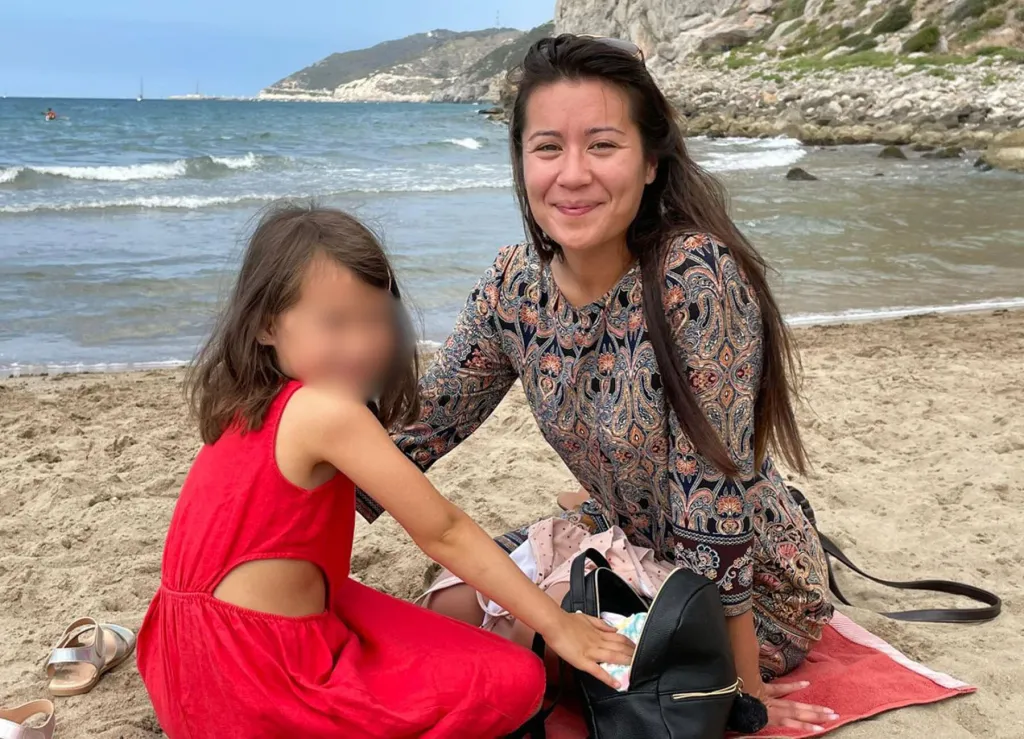
Lucia burst into tears, and Jewel held her tight. Jewel’s mother had to peel her grandchild from her daughter’s arms, passing her — kicking and screaming — to an officer.
“I’ll never recover from that moment,” Jewel said.
In October, though, she caught a break. The Ninth Circuit Court of Appeals found that Coughenour’s refusal to order a psychological exam of Lucia amid “specific, corroborated” claims of abuse had rendered February’s trial “fundamentally unfair.” This error was compounded, the appeals court said, by the judge’s unwillingness to hear from Lucia herself. “In effect, the district court’s rulings made it practically impossible for Lazaro to make out her case.”
The appeals court vacated the return ruling and the fee award and ordered a retrial with a psychological evaluation.
In spring 2022, the judge who replaced Coughenour ordered a Seattle psychologist, Marsha Hedrick, to travel to Spain to examine Lucia, now 7. Asked whom she trusted most in the world, she said her mother, according to a report Hedrick filed in June. Her mom was also the person she’d go to with a problem and her preferred caretaker when she was sick. The funniest person in her life was her mother, she said, while the angriest was her father, who yelled. But he hadn’t actually thrown her out a window, she said, and he’d only briefly locked her outside. She reported no additional violence.
Her biggest fear, she said, was losing one of her parents.
Seth was guilty of “harsh parenting” but not child abuse, Hedrick concluded. While Lucia was more attached to her mother than her father and “does not seem to view him as nurturing or emotionally available to her,” some of her complaints were probably invented to please her mom, in Hedrick’s view.
Lucia was indeed at grave risk of harm, Hedrick found. But its source was “the conflict between her parents and the dysfunctional skills she has developed to deal with that,” the report said.
Those weren’t the findings Jewel needed to get Lucia ordered back to the United States, Brecher told her. And though a Spanish criminal court judge had dismissed her abuse complaint against Seth, his kidnapping complaint against her was proceeding, along with another for failure to pay child support. In a court filing, Seth called for her to serve four years in prison, lose her parental rights for eight, and compensate him for pain and suffering. A prosecutor was weighing whether to take the case.
To avert disaster, Brecher crafted a deal under which the Hague retrial in Washington would be cancelled if Seth dropped the criminal case. He also had to commit to mediation about revising the Spanish custody order.
Jewel would have preferred to roll the dice at the retrial, she said, but she was hoping her lawyer knew best. On June 20, 2022, she signed the settlement. Then, to be near Lucia, she moved to Spain and began building a life there.
She got a remote job as a travel consultant for American Express and a rental in a small hilltop town, where she made friends who became like family. The summer was bliss. She had Lucia for long stretches, and they spent their days swimming and eating ice cream. At dusk, there were street parties with tapas and dancing.
Jewel gained strength. “I wasn’t just in fight or flight mode,” she said. “My mind was rested, and I could process things.” For years, she’d been ashamed of her situation and wondered if she was a terrible person, she said. No longer.
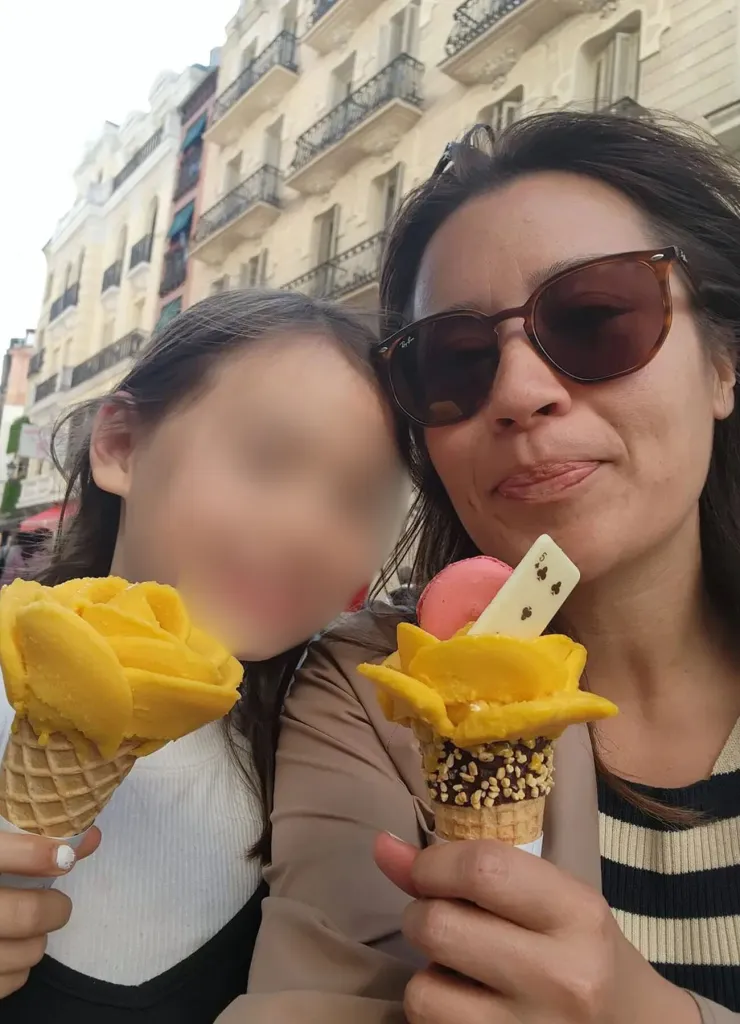
“I think I had one day where I just broke down, and I just needed to be very clear in my mind, like, ‘Had I done something wrong, or was I just a good mother trying to protect my child?’… I took my position and stopped trying to understand why I was being punished.”
She even started to think about having another baby, this time as a single mom.
In the fall, reality set in. She was still guaranteed only one week a month with Lucia, and despite Seth’s promise in the Hague settlement, he refused mediation, saying Jewel first needed to catch up on child support.
As required, he’d withdrawn his criminal complaints, but in September, the prosecutor charged her anyway. The official accusation noted that she’d taken Lucia to Washington without Seth’s consent even though he was her sole custodian. It also cited Coughenour’s criticisms of her, without noting that his ruling had been vacated.
The trial took place over a single morning in July 2023. Again, Jewel described Seth’s abuse, at first through a court interpreter, and then, when she heard him mistranslating “kick,” in the best Spanish she could muster. She admitted she was behind on child support, but she said that was only because she was poor. Testifying for the prosecution, Seth again denied her abuse claims.
In a written ruling, Judge Cristina Torres Fajarnés found that while Seth had behaved inappropriately toward Lucia, Jewel hadn’t proved he was abusive. And Jewel had failed to adequately inform authorities that she couldn’t afford her child support payments, Torres Fajarnés found.
Torres Fajarnés ruled that Jewel was guilty of both kidnapping and failure to pay child support and sentenced her to three years and three months in prison. Her parental rights were revoked for seven years.
When she heard, Jewel was at lunch with her younger brother, who was in town to support her.
“I didn’t want to upset him,” she said. “I went outside and I just walked around the corner, kind of like to an alley, and I just kind of sat down and was just trying to breathe.”
The only good news was that the sentence wouldn’t begin until her appeals were exhausted, which could take years. But when she wrote to Seth about her next visit with Lucia, he said if she came to get her, he’d call the police.
A week later, Jewel awoke to a panicked voicemail from a relative of Seth’s. His house had burned down in the middle of the night, the message said. Lucia, who’d been sleeping, had barely escaped.
Seth and his new wife had also survived, but two of their three dogs perished, Jewel learned later. They were claiming that she’d set the blaze, trying to kill them all.
The war zone
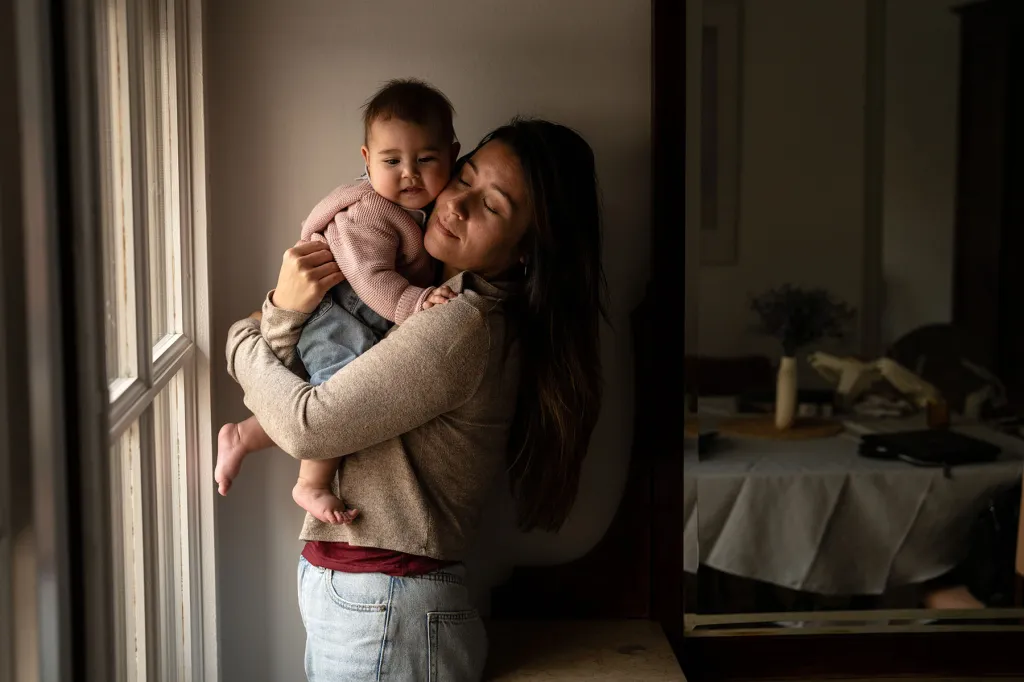
It’s been 25 years since Weiner warned, in the pages of a law journal, that the convention was being weaponized by abusers. Since then, little has changed, according to Weiner, except that more countries have joined the convention and more petitions are filed. In an average year, more than 1,000 children are returned under the treaty worldwide, official data indicates, including about 150 children returned from the United States.
Fed-up mothers are uniting, with limited results.
In 2023, a coalition of domestic violence victims and their allies from around the world collected more than 37,000 signatures on a petition criticizing the treaty and hand-delivered them to the conference’s secretary general, Christophe Bernasconi. In response, he convened a multinational forum in South Africa last year that included academics, government officials and advocates for both mothers and fathers.
It was a “teeny tiny step forward,” said Fidler, who presented. But she was frustrated when some speakers characterized abduction as universally harmful, without recognizing that it can be a lifeline. She was also struck by how skeptically the officials at the conference, including judges, tended to regard women’s claims of abuse. “There seemed to be a general sense of, ‘Well, I think they’re exaggerating them for effect.’”
In an email, Bernasconi, who declined a request for an interview, described the gathering as “an historic event that for the first time brought together representatives of all major voices engaged in this delicate and complex matter.”
The forum will reconvene in October in Brazil, but feminists doubt it will lead to substantive change. According to Weiner, it’s unlikely that the treaty will ever be revised, because if even a handful of signatories oppose reform, they can block it.
She is calling for the creation of a complementary pact, unaffiliated with the Hague Conference, that would undo some of the harms of its predecessor. Under the new treaty, for example, countries would be forbidden from offering legal assistance to one party in a Hague case but not the other, and there would be a presumption against return whenever spousal abuse was proven.
She’s no longer pursuing ICARA reform, but Hague mothers haven’t given up on it. This winter, Michelle Monasky, a biophysicist from the Cleveland area who has scarcely been permitted to see her daughter in the decade since she was ordered back to Italy, revised the defunct bill and sent it to Rep. David Joyce, an Ohio Republican, hoping he’d sponsor it.
She has heard nothing back, except that the office is busy. At her behest, at least six other Hague mothers have also lobbied their representatives about the updated bill, she said. No one has bitten.
“There are literally mothers and children who have been murdered because of this law, and they are telling me they have more important things that they have to work on in Congress,” Monasky said. “I don’t understand what could be more important than the safety of our children.”

Jewel now serves on the advisory council of a new initiative at Sanctuary for Families, named after Golan, to build a nationwide network of attorneys for Hague mothers. But most of her time is consumed with her own problems, which have continued to snowball.
When Seth’s house burned down in summer 2023, he took Lucia to Ireland, and Jewel followed, desperate to comfort her. But, based on Seth’s claims that Jewel was a kidnapper, a stalker, and a “prime suspect” in the fire, a judge there gave him a temporary restraining order. Jewel’s criminal lawyer, Henry Feltenstein Arechabala, said Spanish authorities told him in the fall that she wasn’t a suspect at all.
In the winter, the Irish judge met with Lucia. It turned out the girl didn’t want to see her mother, who, she believed, had burned down her home. Her father had said so, she told the judge.
Getting this news, Jewel said, was “the hardest moment of all.”
“The worst thing you could do to a little girl is, first, take away her mother, but then convince the little girl that her mother tried to murder her,” she said. “That girl loved her mother so much.”
Jewel might not have survived the heartbreak, she said, except that, by this time, she was four months pregnant. In the months that followed, she often felt numb inside, but she made sure to cook for herself, get enough sleep, and keep warm. She needed to stay strong, for both children.
She followed Seth and Lucia back to Spain, where she tried, without success, to get a family court judge to enforce her visitation rights. Then, in April 2024, she lost her initial criminal appeal. The appellate court faulted her for waiting until she and Lucia had left Spain to formalize her police complaint against Seth and, like the trial judge, criticized her failure to obtain a sufficient child support modification. Jewel asked the Spanish supreme court to review that ruling, but Feltenstein Arechebala told her not to expect much.
Last June, after a difficult labor, she gave birth to her second daughter, Selah. The name, from the Book of Psalms, means rest and eternity.
New motherhood unfroze her emotions. She was joyful again, but also full of despair, which, for Selah’s sake, she did her best to mask. She set up playdates, swimming lessons, and singalongs. This January, when the supreme court said it wouldn’t hear her case, she curled up next to Selah and wept silently.
Jewel’s last hope is a pardon from the Ministry of Justice, which she has applied for with the help of a prominent clemency lawyer. In 2021, Carlos Aránguez Sánchez obtained a partial pardon for a Spanish Hague mother who was convicted of kidnapping her children after defying a judge’s order to return them to their father in Italy. He had previously been convicted of assaulting her.
A criminal court judge has suspended Jewel’s prison sentence while the ministry deliberates, which indicates that the judge thinks she could prevail, Aránguez Sánchez’s team said.
Jewel and Selah are now shuttling back and forth between Washington, where they’re spending time with family, and Spain, where Jewel is still pushing to see Lucia, now 10. “I told myself I wouldn’t sacrifice one child for the other,” she said.
Feltenstein Arechabala said a court employee told him the investigation into Seth’s house fire has been closed, and no charges will be brought against anyone. But, as of May, Seth continued to call Jewel the “prime suspect” in an “attempted murder” case.
One day this spring, Jewel put Selah in a baby carrier and showed up at Lucia’s school, holding the custody order to prove she had visitation rights. Administrators called the police anyway. At her insistence, the officers brought Lucia to talk to her.
“I said, ‘Hi, baby. It’s not true what they say. I love you, I would never hurt you. It’s not true, let’s talk for a minute.’”
Lucia refused and walked away.
It’s like living in a war zone, but you’re fighting for your children.”
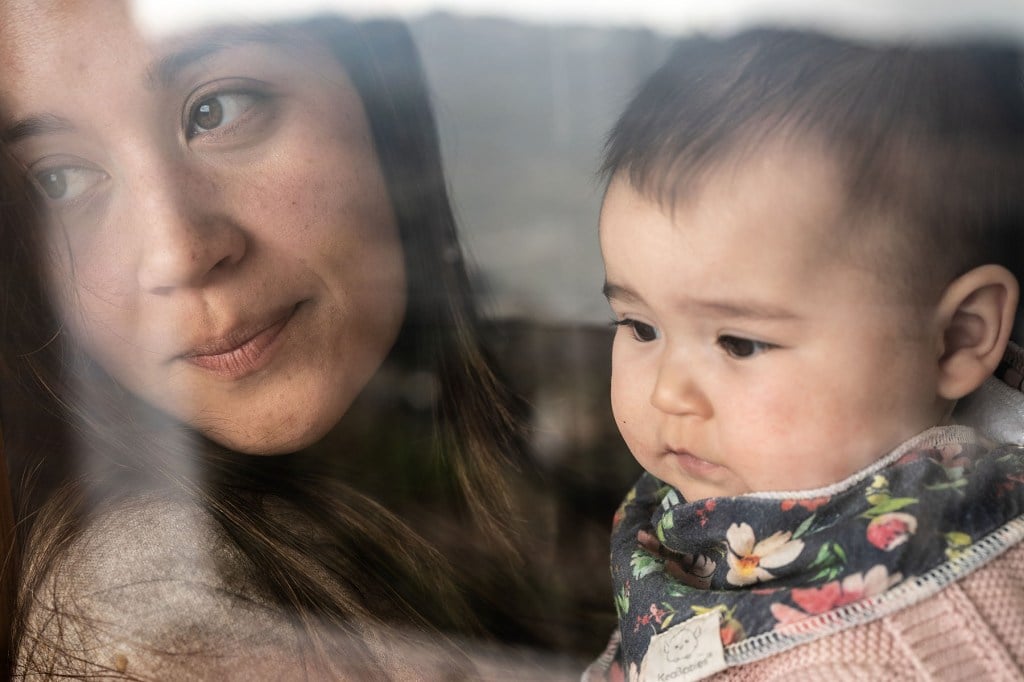
At her apartment that night, Jewel tried not to look at Lucia’s things. “I have to be very careful about what I’m processing and what I’m allowing myself to feel, because I get sick,” she said. “It’s like living in a war zone, but you’re fighting for your children.”
For that reason, she tries not to think about how she might soon be parted from Selah, who just turned 1. Though Spanish prisons sometimes accommodate young children of inmates, she thinks Selah would be better off in Washington, with her grandmother.
Jewel says she would rather think about the distant future, when, ideally, she will have both her girls back. She likes to picture where they will live: outside a small, quirky town, in a wooden house with a wraparound deck. She wants a German shepherd to keep them safe and horses they can ride in the woods. A cow for their milk, a garden for their vegetables. A job helping Hague mothers however she can.
“This is the happy ending to the horror story I’ve lived,” she said.
And if she can’t have all that, she just wants this: to tuck both girls in under her roof, and to wake up knowing they are safe.
Olivia Gentile has been reporting on domestic abuse and custody disputes since 2017. Paco Alvarez and Nina Zweig contributed research.
A note on our numbers
Using a string of terms and connectors, we searched a legal database, Westlaw, for all judicial rulings issued between July 1, 2022 and June 30, 2024 pertaining to the Hague Abduction Convention.
This yielded 319 rulings from 217 cases filed in state or federal court. (Not all rulings decided the outcome of the case.) We then screened out cases in which the convention wasn’t actually being litigated, those in which the alleged abduction was to a country besides the United States, and those involving a party who wasn’t a parent. This left us with 114 cases filed between 2018 and 2024.
This sample accounts for a small minority of the return petitions filed in the United States during this time, which generally numbered more than 300 per year. Many petitions are resolved without litigation, after being filed with the State Department, while many others involve a lawsuit that isn’t captured on Westlaw.
For every case in the sample, we gathered public records such as docket pages, pleadings, affidavits, motions, and transcripts in addition to rulings. In federal cases, which comprised the bulk of the sample, these documents were generally available on PACER.




